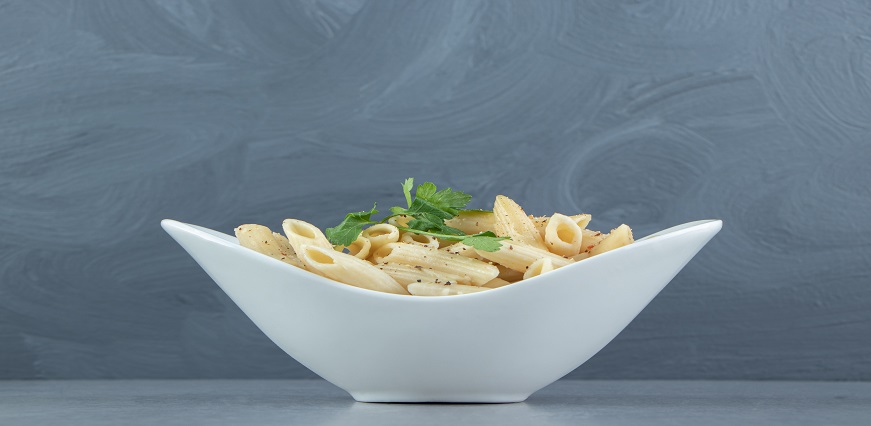





No lab centers are available in this city

The article explores the foods that might be causing irregular periods in women with PCOS.
Polycystic ovary syndrome, commonly referred to as PCOS, is a disorder that affects the hormones responsible for ovulation. Affected women may have difficulty getting pregnant or may have irregular periods. There is no known cure for PCOS, but treatments can help improve symptoms.
PCOS is caused by an imbalance in the hormones insulin and testosterone. Insulin controls how much sugar is stored in our muscles and liver, while testosterone helps to create eggs and promote fertility. When these hormones are out of balance, they can lead to PCOS symptoms.
PCOS is a condition that affects around 10% of women and is caused by an imbalance in the hormones estrogen and progesterone. One of the side effects of this imbalance is weight gain. There are a few things you can do to help manage your weight and PCOS, including:
- eating a balanced diet that includes foods from all the major food groups
- exercising regularly
- avoiding processed foods, sugars, and excessive carbs
- taking birth control if you’re not already taking it
If you’re struggling with PCOS and weight gain, talk to your doctor about treatments that may be available to help.
There are many foods that can aggravate PCOS symptoms, but there are also a few that can help to improve your health and manage your symptoms. Here are six foods to avoid in PCOS:
Gluten is a protein found in many grains, including wheat. People with PCOS may have difficulty digesting gluten, which can lead to an increase in insulin levels and inflammation. Gluten-free diets may be a good option for those with the disorder.
People with PCOS often have issues with their hormones, so dairy products can trigger problems like acne and hair loss. Additionally, milk and cheese contain high levels of IGF-1, which has been linked to increased insulin resistance and other metabolic issues in people with PCOS. Opt for alternatives like soy milk or almond milk instead.
Drinking too much sugar is a common cause of weight gain and diabetes in people with PCOS, which can worsen the disorder’s symptoms. Avoid sugary drinks like soda, energy drinks, sweetened coffee beverages, and fruit juices altogether. Instead, Drink unsweetened herbal tea or water enriched with healthy Omega-3 fatty acids to stay hydrated and support your overall health.
Starch-rich foods like potatoes and pasta can increase blood sugar levels after they're eaten, which can aggravate PC.
Legumes (such as beans and lentils) have been linked in studies with an increased risk of developing PCOS and other issues related to insulin resistance such as type 2 diabetes mellitus. If you do eat beans or lentils, make sure they are cooked thoroughly before consuming them so that they do not contain excessive amounts of lectins that can aggravate symptoms in people with PCOS.
These foods tend to be high in sugar and other unhealthy ingredients. Instead of eating these types of foods, try to stick to whole, natural foods as much as possible.
If you are currently living with PCOS, it is important to know about the foods that can cause problems for people with the condition. Some of these foods include high-grain diets, processed foods, artificial sweeteners, and excess sugar. By following a healthy ketogenic diet and avoiding these difficult to adhere to food choices, you can help maintain your health and fertility while managing your PCOS.
With our offerings in line with government-mandated prices, Maxlab offers full body checkup packages that cover an exhaustive list of tests for a comprehensive diagnosis of your health. Choose from a range of health test packages based on your needs.
 Allergy Test
Allergy Test
 Anemia Test
Anemia Test
 Auto immune
Auto immune
 Blood disorder
Blood disorder
 Bone and Joint
Bone and Joint
 Cancer Test
Cancer Test
 Cardiology Test
Cardiology Test
 Covid Recovery
Covid Recovery
 Dengue Test
Dengue Test
 Depression
Depression
 Diabetes Test
Diabetes Test
 Fatigue
Fatigue
 Fever Test
Fever Test
 Full body
Full body
 Gastro Test
Gastro Test
 Gastrointestinal
Gastrointestinal
 Gynaecology Test
Gynaecology Test
 Heart Test
Heart Test
 HIV Test
HIV Test
 Hormone Test
Hormone Test
 Hypertension
Hypertension
 Immunity Test
Immunity Test
 Infectious Disease
Infectious Disease
 Infertility Test
Infertility Test
 Influenza Test
Influenza Test
 Iron Test
Iron Test
 Kidney Test
Kidney Test
 Liver Test
Liver Test
 Lung Test
Lung Test
 Nephrology
Nephrology
 Obesity
Obesity
 Orthopedics Test
Orthopedics Test
 Physician
Physician
 Pollution Health Checkup
Pollution Health Checkup
 Pregnancy Test
Pregnancy Test
 Prostate Test
Prostate Test
 Senior Citizen Test
Senior Citizen Test
 STD Test
STD Test
 Thyroid Test
Thyroid Test
 Tuberculosis Test
Tuberculosis Test
 Vitamin Test
Vitamin Test
 Women Health Test
Women Health Test
Sign up takes less than 60 secs and gives you access to your offers, orders and lab tests.
Looks like you are not registered with us. Please Sign up to proceed
OTP will be sent to this number by SMS
We have successfully received your details. One of the agents will call you back soon.
 To reach our help desk call 9213188888
To reach our help desk call 9213188888
No Lab Centers are available in this city
Looks like you are not registered with us. Please Sign up to proceed
OTP will be sent to this number by SMS
Not Registered Yet? Signup now.Looks like you are not registered with us. Please Sign up to proceed





 7982100200
7982100200.png)